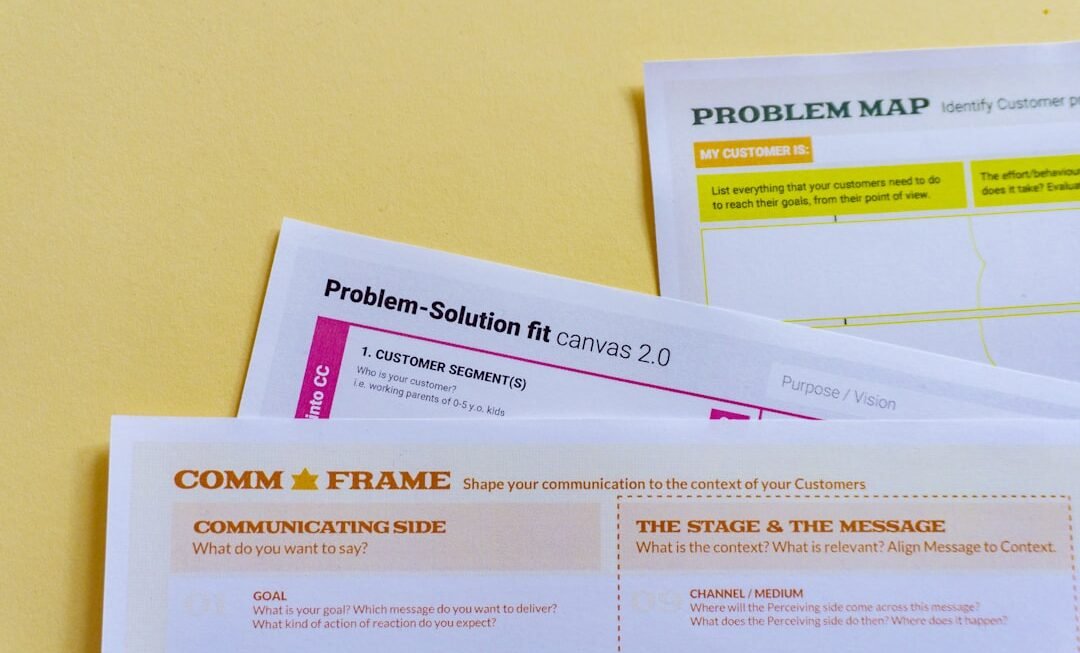In recent years, the landscape of content creation has undergone a significant transformation, largely driven by advancements in artificial intelligence (AI). AI-powered content generation tools have emerged as essential assets for marketers, enabling them to produce high-quality content at an unprecedented scale and speed. These tools leverage sophisticated algorithms and machine learning techniques to analyze vast amounts of data, understand context, and generate text that resonates with target audiences.
As businesses strive to keep pace with the ever-increasing demand for fresh and engaging content, the integration of AI into their marketing strategies has become not just beneficial but essential. The rise of AI in content generation is not merely a trend; it represents a fundamental shift in how content is created and consumed. Traditional methods of content creation often involve significant time and resource investments, which can hinder a brand’s ability to respond quickly to market changes or consumer preferences.
In contrast, AI tools can automate many aspects of the writing process, from ideation to drafting and editing, allowing marketers to focus on strategy and creativity. This evolution is reshaping the marketing landscape, making it imperative for businesses to understand and embrace these technologies to remain competitive.
Key Takeaways
- AI-powered content generation tools can significantly enhance content creation in marketing by automating the process and improving efficiency.
- Using AI for content generation in marketing can lead to benefits such as increased productivity, improved content quality, and better audience engagement.
- Natural Language Processing (NLP) and AI work together to enable machines to understand, interpret, and generate human language, making content creation more efficient and effective.
- Some top AI-powered content generation tools for marketers include GPT-3, Clearscope, and Frase, which can help in creating high-quality and relevant content.
- AI can enhance personalization in content marketing by analyzing data and user behavior to create tailored content that resonates with the audience.
Benefits of Using AI for Content Generation in Marketing
The benefits of utilizing AI for content generation in marketing are manifold, with efficiency and scalability being among the most prominent advantages. AI tools can produce large volumes of content in a fraction of the time it would take a human writer. For instance, a marketer can use an AI tool to generate multiple blog posts or social media updates within minutes, significantly reducing the time spent on content creation.
This efficiency allows marketing teams to allocate their resources more effectively, focusing on strategic initiatives rather than getting bogged down in the minutiae of writing. Moreover, AI-generated content can be tailored to meet specific audience needs and preferences. By analyzing data from various sources, including social media interactions and website analytics, AI tools can identify trending topics and relevant keywords that resonate with target demographics.
This capability enables marketers to create content that is not only timely but also highly relevant, increasing the likelihood of engagement and conversion. The ability to produce personalized content at scale is a game-changer for brands looking to enhance their customer relationships and drive loyalty.
Understanding Natural Language Processing (NLP) and AI
At the heart of AI-powered content generation lies Natural Language Processing (NLP), a subfield of artificial intelligence focused on the interaction between computers and human language. NLP encompasses a range of techniques that enable machines to understand, interpret, and generate human language in a way that is both meaningful and contextually appropriate. This technology is crucial for content generation tools, as it allows them to analyze text data, recognize patterns, and produce coherent narratives that align with human communication styles.
NLP operates through various processes, including tokenization, sentiment analysis, and language modeling. Tokenization involves breaking down text into smaller units, such as words or phrases, which can then be analyzed for meaning. Sentiment analysis helps determine the emotional tone behind a piece of text, enabling marketers to craft messages that resonate with their audience’s feelings.
Language modeling, on the other hand, involves predicting the next word in a sequence based on the context provided by previous words. These processes work together to create AI-generated content that is not only grammatically correct but also contextually relevant and engaging.
Top AI-Powered Content Generation Tools for Marketers
Several AI-powered content generation tools have gained prominence in the marketing world, each offering unique features tailored to different needs. One notable example is OpenAI’s GPT-3, which utilizes advanced language modeling techniques to generate human-like text across various formats, including articles, social media posts, and product descriptions. Its versatility makes it a popular choice among marketers looking for a comprehensive solution for their content needs.
Another powerful tool is Jasper (formerly known as Jarvis), which specializes in creating marketing copy that drives conversions. Jasper offers templates for various types of content, such as blog posts, email campaigns, and ad copy, allowing marketers to streamline their writing process while maintaining brand voice and messaging consistency. Additionally, tools like Copy.ai and Writesonic provide user-friendly interfaces that enable marketers to generate content quickly without requiring extensive technical knowledge.
These platforms often include features like keyword optimization and SEO suggestions, further enhancing their utility in digital marketing strategies.
How AI Can Enhance Personalization in Content Marketing
Personalization has become a cornerstone of effective content marketing, as consumers increasingly expect tailored experiences that cater to their individual preferences. AI plays a pivotal role in enhancing personalization by analyzing user data to deliver relevant content at the right time. By leveraging machine learning algorithms, marketers can segment their audience based on behavior patterns, demographics, and interests, allowing for more targeted messaging.
For instance, an e-commerce brand can use AI to analyze customer purchase history and browsing behavior to recommend products that align with individual preferences. This level of personalization not only improves user experience but also increases conversion rates as customers are more likely to engage with content that speaks directly to their needs. Furthermore, AI can automate the delivery of personalized content across various channels—such as email newsletters or social media—ensuring that consumers receive timely information that enhances their journey with the brand.
Overcoming Challenges and Limitations of AI-Generated Content
Despite the numerous advantages of AI-generated content, there are challenges and limitations that marketers must navigate. One significant concern is the potential lack of creativity and emotional depth in AI-generated text. While AI tools can produce grammatically correct and contextually relevant content, they may struggle to capture the nuances of human emotion or convey complex ideas in a compelling manner.
This limitation underscores the importance of human oversight in the content creation process; marketers should view AI as a tool that complements rather than replaces human creativity. Another challenge lies in ensuring the accuracy and reliability of information generated by AI tools. Since these systems rely on existing data to produce content, there is a risk of perpetuating misinformation or generating outdated information if not properly monitored.
Marketers must implement rigorous quality control measures when using AI-generated content to ensure that it aligns with brand values and maintains credibility with their audience. This may involve fact-checking generated text or incorporating human editorial input before publication.
Integrating AI-Generated Content into Your Marketing Strategy
To effectively integrate AI-generated content into a marketing strategy, businesses must first identify specific use cases where these tools can add value. For example, brands may choose to use AI for generating blog posts or social media updates while reserving more complex tasks—such as crafting brand narratives or developing thought leadership pieces—for human writers. This hybrid approach allows companies to leverage the efficiency of AI while maintaining the authenticity and creativity that resonate with audiences.
Additionally, marketers should establish clear guidelines for how AI-generated content fits within their overall brand voice and messaging framework. Consistency is key; therefore, it is essential to ensure that any content produced by AI aligns with established brand guidelines. Training team members on how to effectively use these tools can also enhance integration efforts, enabling marketers to maximize the potential of AI while minimizing potential pitfalls.
Best Practices for Using AI-Powered Content Generation Tools
To harness the full potential of AI-powered content generation tools, marketers should adhere to several best practices. First and foremost is understanding the capabilities and limitations of the specific tool being used. Familiarizing oneself with its features—such as tone adjustments or keyword optimization—can help marketers tailor their approach effectively.
Another best practice involves maintaining a collaborative workflow between human writers and AI tools. While AI can handle repetitive tasks efficiently, human oversight is crucial for ensuring quality and creativity in final outputs. Establishing a feedback loop where human editors review and refine AI-generated content can lead to higher-quality results that resonate more deeply with audiences.
Case Studies: Successful Implementation of AI in Content Marketing
Several brands have successfully implemented AI-powered content generation tools into their marketing strategies with impressive results. For instance, The Washington Post has utilized an AI tool named Heliograf to automate the writing of news articles on topics such as sports scores and election results. By leveraging this technology, the publication has been able to produce timely updates at scale while freeing up journalists to focus on more complex stories that require human insight.
Another example is HubSpot’s use of AI-driven tools for generating personalized email campaigns. By analyzing user behavior data, HubSpot’s platform can create tailored email content that speaks directly to individual recipients’ interests and needs. This approach has led to increased open rates and engagement levels among subscribers, demonstrating how effectively integrating AI into marketing efforts can yield tangible results.
The Future of AI-Powered Content Generation in Marketing
As technology continues to evolve, the future of AI-powered content generation in marketing looks promising yet complex. Emerging trends suggest that we will see even greater advancements in NLP capabilities, enabling machines to produce increasingly sophisticated text that closely mimics human writing styles. Additionally, as data privacy regulations become more stringent, marketers will need to navigate ethical considerations surrounding data usage while leveraging AI for personalization.
Furthermore, the integration of AI with other technologies—such as augmented reality (AR) or virtual reality (VR)—could open new avenues for immersive storytelling experiences in marketing campaigns. Brands may find innovative ways to engage consumers through interactive content that combines visual elements with personalized narratives generated by AI systems.
Embracing AI for Enhanced Content Creation in Marketing
The integration of AI-powered content generation tools into marketing strategies represents a significant opportunity for brands seeking efficiency and effectiveness in their content creation efforts. By understanding the capabilities of these technologies and implementing best practices for their use, marketers can enhance personalization while overcoming challenges associated with automated writing processes. As businesses continue to adapt to an increasingly digital landscape, embracing AI will be crucial for staying competitive and meeting consumer expectations in an ever-evolving market environment.












